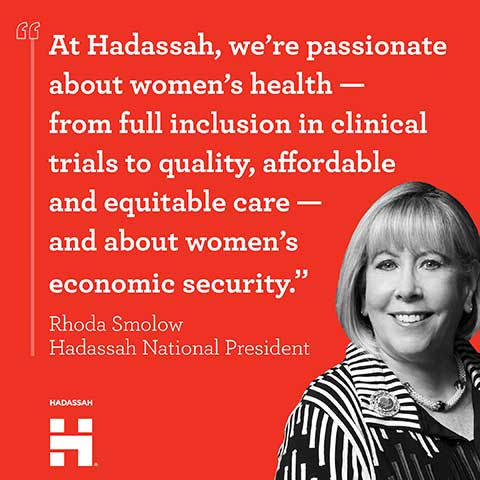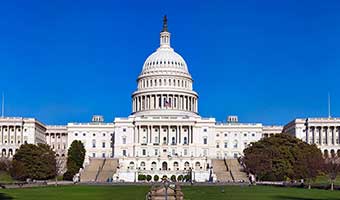
By Rhoda Smolow
“A hopeful moment after a long, dark year.”
I ate too many latkes and lit our menorah and said the blessings, like every year. But this Hanukkah as we laughed over Zoom at our faraway families and friends, COVID-19 assumed its place as the Number 1 cause of death in America, reminding us how precious our family time is, as an unfathomable number of families mourn.
Rekindled Hope
Yet each candle we lit served as a very Jewish reminder of perseverance and persistence. Watching the flames flicker, something important was rekindled: our hope. Finally, the day had come when the end seemed possible: those fighting COVID on the frontlines were rolling up their sleeves for the first US vaccinations. A hopeful moment after a long, dark year.
Looking Ahead: Women at All the Tables
These first vaccinations mark a turning point, the very beginning of the next phase. Even as the surge sweeps the country, we can think of recovery. A little like the solstice — on Monday — literally the shortest, darkest day of the year, followed by longer, more light-filled days.
Many months stand between us and the return to some semblance of normalcy.
To get there, we must ensure that women — including women of color — are at every table that is part of shaping America's long-term recovery plans. The disproportionate economic impact the pandemic has taken on women must be addressed. If not, the setbacks for women could last for generations.
Back in May, my dear friend Janice Weinman, Hadassah executive director/CEO, wrote about the power of women's leadership, especially during the "she-session," the term coined to describe how women are being harder hit by the economic fallout of the pandemic. In July, our Hadassah National Board passed a policy statement sounding the alarm: "Women have been bearing the disproportionate brunt of COVID's social effects, including lost jobs, domestic violence, reduced access to reproductive care, and food, housing, and income insecurity." At the same time we called for "public education around the importance of vaccinations and, once developed, the rapid production and distribution of a COVID-19 vaccine." Today, that's more important than ever.
From Job Loss to Health Coverage Loss
Consider this: More than half of women between the ages 19-64 (60%) received their health coverage from employer-sponsored insurance before the pandemic, according to the Kaiser Family Foundation. That's 58.6 million women.
As women lose or leave their jobs because of COVID-19, too many are losing — or will soon lose — their health insurance, and with it, access to health care.
Now consider this: Of the 12.1 million women's jobs lost between February and April, more than 40% have not returned, according to a December National Women's Law Center analysis of the Bureau of Labor Statistics's November jobs report.
When COVID arrived in the United States, it made even clearer just how inadequate our national childcare options were and just how much more of the burden of household family responsibilities working mothers were shouldering. With COVID, the already delicate work-family juggle has become unsustainable, if not untenable.
That's why, in part, so many working women with young children have scaled back their hours or left their jobs entirely to fill the family childcare void, nearly four to five times the rate of fathers, according to the Center for American Progress. In November, 10,000 women left the labor force. Between February and November, 2.2 million left — in part because of job cuts in female-dominated sectors, and in part because of the lack of childcare, according to the National Women's Law Center. Think about it: that's nearly the population of Houston, America's fourth-largest city. Between August and September, 865,000 left, versus 216,000 men.
For women's health, this could be devastating. New York and California are among the states that extended deadlines for enrolling in state health care plans: "We want to leave no one uncovered in the middle of a pandemic so that is why we are leaning in right now," said the executive director of California's health care exchange.
At the same time, we're seeing increases in non-COVID related health issues and death rates — or, in the words of a December headline in The New York Times: "2020 Was Especially Deadly. Covid Wasn’t the Only Culprit." What they found? Deaths from a range of other causes were abnormally high: diabetes (15% above normal); Alzheimer’s disease and dementia (12%); and coronary heart disease (6%). Back in June, Dr. Donna Zwas, director of the Linda Joy Pollin Cardiovascular Wellness Center for Women at Hadassah Hospital Ein Kerem, cited a 29 percent increase in heart attacks and 32 percent increase in strokes among women, due in part to social isolation and loneliness.
We Need to Keep Talking About — and Tracking — Gender Disparities
"Media coverage of the pandemic continues to overlook the gender dimensions of the pandemic," wrote Nandini Oomman, Kathryn Conn and Elizabeth O'Connell in STAT. "Women provide 70% of health care globally; there are gender differences in disease progression and gender-based disparities in access to care; the pandemic is having disproportionate effects on women of color; and the broader consequences of epidemics on reproductive, maternal, and child health."
Hadassah joined other national health-focused organizations in urging Congress to fund millions of dollars in new research into the long-term health complications faced by COVID-19 survivors, known as Long COVID, including chronic conditions associated with viral triggers. "If this data trend continues, an estimated 3.2 million Americans will be temporarily or permanently disabled by post-COVID-19 symptoms over the next 12 months," the December 4 letter says.
At Hadassah, we're passionate about women's health — from full inclusion in clinical trials to quality, affordable and equitable care — and about women's economic security. As we get ready for a new year, we'll do all we can to get through this pandemic — and to hold on to all that's dear: our loved ones, our sanity, our livelihoods and homes. And the work of Hadassah has for many of us played a role in our own lives — helping us connect with each other, fight the virus and empower women.
This year, we came together even as we lost so much, including Supreme Court Justice Ruth Bader Ginsburg — a Hadassah member. Let's help protect her legacy by honoring her words: "Women belong in all places where decisions are being made." I’m proud to see how so many of our members and leaders, doctors and researchers have stepped up over these dark months.
Spreading light — and our focus on hope and healing — will be a big part of what we bring into our new year.
Rhoda Smolow is the national president of Hadassah.
This essay is part of Hadassah's monthly thought leadership series.








